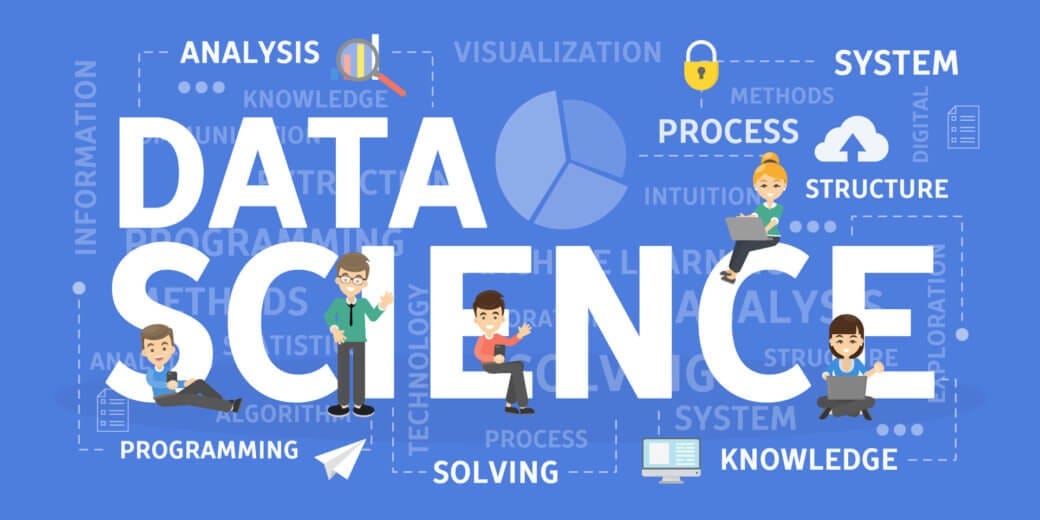What is an Artificial Intelligence Dissertation?
An Artificial Intelligence (AI) Dissertation is a research project where students explore different aspects of AI, like machine learning, robotics, or natural language processing. Writing a dissertation on AI means diving deep into how machines can learn, think, and solve problems. It’s about understanding and creating systems that can perform tasks usually requiring human intelligence.
Why are Artificial Intelligence Dissertation Topics Important?
Artificial Intelligence is transforming the world. From self-driving cars to smart assistants like Siri, AI is everywhere. Choosing a topic in AI is important because it lets you contribute to a field that’s shaping the future.
Your research could lead to new technologies, improve existing ones, or offer solutions to current problems. AI topics are also highly relevant, making your dissertation valuable in both academic and practical terms.
Writing Tips for Artificial Intelligence Dissertation
- Choose a Focused Topic: Pick a specific area of AI that interests you. This makes your research more manageable and in-depth.
- Use Up-to-Date Sources: AI is a fast-evolving field, so use the latest research and technology to back up your work.
- Break Down Complex Ideas: Explain technical concepts in simple terms. This helps make your dissertation clear and easy to understand.
- Plan Your Work: Create an outline before you start writing. This helps organize your thoughts and ensures a logical flow.
List of Top Artificial Intelligence Dissertation Topics
Explore cutting-edge Artificial Intelligence dissertation topics, including machine learning, neural networks, AI ethics, automation, and deep learning. Find innovative research ideas for your AI thesis and contribute to the future of intelligent systems.
Natural Language Processing (NLP)
- Sentiment analysis in social media: Leveraging NLP for understanding public opinion.
- Neural machine translation: Enhancing language translation models using deep learning techniques.
- Dialogue systems for virtual assistants: Designing conversational agents with improved contextual understanding.
- Text summarization algorithms: Automating the process of condensing large texts while preserving essential information.
- Named entity recognition: Developing models to identify and classify entities in unstructured text data.
Machine Learning Algorithms
- Reinforcement learning in autonomous systems: Optimizing decision-making processes for self-driving vehicles.
- Generative adversarial networks (GANs) for image synthesis: Creating realistic images from scratch using adversarial training.
- Transfer learning in healthcare: Utilizing pre-trained models to improve medical image analysis and diagnosis.
- Ensemble learning methods: Investigating the performance of ensemble techniques in improving model robustness and accuracy.
- Anomaly detection in cybersecurity: Developing ML-based approaches to identify and mitigate security breaches.
Computer Vision
- Object detection and recognition in video surveillance: Enhancing surveillance systems for real-time threat detection.
- Image segmentation for medical imaging: Segmenting medical images to assist in disease diagnosis and treatment planning.
- Facial recognition technology: Exploring the ethical implications and privacy concerns surrounding facial recognition systems.
- Visual question answering (VQA): Building AI systems capable of answering questions about visual content.
- Scene understanding and image captioning: Enabling machines to describe visual scenes with contextual understanding.
Deep Learning Applications
- Deep reinforcement learning for robotics: Teaching robots to perform complex tasks through trial and error.
- Deep neural networks for financial forecasting: Predicting market trends and stock prices using deep learning models.
- Speech recognition with deep learning: Improving the accuracy and robustness of speech recognition systems.
- Deep learning in drug discovery: Accelerating the process of drug development through computational methods.
- Deep learning for natural disaster prediction: Harnessing AI to forecast and mitigate the impact of natural calamities.
Ethical and Social Implications of AI
- Bias and fairness in AI algorithms: Addressing algorithmic biases to ensure fairness and equity in AI systems.
- AI and employment: Investigating the impact of automation on the future of work and employment opportunities.
- Privacy-preserving AI techniques: Developing methods to protect user privacy in data-driven AI applications.
- Autonomous weapons and ethical considerations: Examining the ethical dilemmas surrounding the use of AI in military applications.
- AI regulation and policy: Analyzing the need for regulatory frameworks to govern the development and deployment of AI technologies.
AI in Healthcare
- Predictive analytics for disease diagnosis: Using AI models to predict disease onset and progression.
- Personalized medicine and treatment recommendation systems: Tailoring medical treatments based on individual patient characteristics.
- Medical image analysis for early disease detection: Leveraging AI to analyze medical images for early signs of disease.
- AI-driven drug discovery and development: Accelerating the discovery of new drugs through computational methods.
- Telemedicine and AI-powered healthcare delivery: Exploring the role of AI in remote patient monitoring and diagnosis.
Natural Language Generation (NLG)
- Automated content creation: Generating human-like text for various applications, such as journalism and storytelling.
- NLG for data-to-text generation: Converting structured data into natural language narratives for better data interpretation.
- NLG in educational technology: Developing AI tutors capable of generating personalized learning materials.
- NLG for conversational agents: Enabling chatbots and virtual assistants to generate coherent and contextually relevant responses.
- NLG for creative writing: Exploring the use of AI in generating poetry, fiction, and other forms of creative content.
Robotics and Automation
- Human-robot collaboration in manufacturing: Investigating ways to improve collaboration between humans and robots in industrial settings.
- Autonomous navigation for drones: Developing algorithms for unmanned aerial vehicles (UAVs) to navigate safely in dynamic environments.
- Robotic exoskeletons for rehabilitation: Designing wearable robots to assist patients with physical therapy and rehabilitation.
- Swarm robotics: Studying collective behaviors in robotic systems inspired by natural swarms.
- Social robotics and emotional intelligence: Building robots capable of understanding and responding to human emotions.
AI for Education
- Personalized learning platforms: Designing AI-based systems to adapt educational content and pace to individual student needs.
- Intelligent tutoring systems: Providing personalized guidance and feedback to students based on their learning progress.
- Automated essay scoring: Developing AI models to evaluate and provide feedback on student essays.
- Gamification in education: Using AI techniques to create engaging educational games and simulations.
- Adaptive learning interfaces: Designing interfaces that adapt to user preferences and learning styles in real-time.
Artificial Intelligence in Finance
- Algorithmic trading strategies: Developing AI-powered trading algorithms for financial markets.
- Fraud detection and prevention: Using AI models to identify and prevent fraudulent activities in banking and finance.
- Credit risk assessment: Predicting the creditworthiness of individuals and businesses using machine learning.
- Portfolio management optimization: Leveraging AI techniques to optimize investment portfolios and minimize risk.
- Financial forecasting and trend analysis: Using AI models to predict market trends and financial outcomes.
AI for Environmental Sustainability
- Smart energy management systems: Using AI to optimize energy consumption and reduce carbon emissions.
- Precision agriculture: Implementing AI-driven techniques for optimizing crop yield and resource utilization.
- Wildlife conservation and monitoring: Developing AI-based systems for tracking and protecting endangered species.
- Climate change modeling and prediction: Utilizing AI to analyze climate data and predict future trends in global warming.
- Pollution monitoring and control: Deploying AI sensors and systems for monitoring and mitigating environmental pollution.
Artificial-Intelligence in Transportation
- Autonomous vehicles and traffic management: Designing AI systems for autonomous driving and traffic optimization.
- Public transportation optimization: Using AI to improve the efficiency and reliability of public transportation networks.
- Predictive maintenance for transportation infrastructure: Implementing AI-driven maintenance schedules to prevent breakdowns and delays.
- Air traffic management: Developing AI-based systems for managing air traffic and ensuring safety in aviation.
- Intelligent transportation systems for smart cities: Integrating AI technologies to enhance mobility and reduce congestion in urban areas.
Artificial Intelligence and Human-Computer Interaction
- Emotion recognition in user interfaces: Designing interfaces that can recognize and respond to users’ emotional states.
- Voice-based user interfaces: Developing AI-powered voice assistants for intuitive and hands-free interaction.
- Gesture recognition for augmented reality: Implementing
Topics Brief Service
If you are unsure about which topic to choose, our AI dissertation topic brief service provides a well-researched outline with key points, objectives, and references to kickstart your dissertation.
Download Dissertation Samples
Need inspiration? Download high-quality AI dissertation samples to understand how to structure your paper, formulate arguments, and cite sources correctly.
Get AI Dissertation Help
Struggling with your dissertation? Our expert writers specialize in AI dissertations and can help you with topic selection, research, writing, and editing. Get professional AI Dissertation Help now!
Conclusion
Artificial Intelligence is a fascinating and rapidly growing field. Choosing the right topic for your dissertation can make a significant impact on your academic career and the world of AI.
Whether you’re interested in developing new algorithms, exploring ethical issues, or applying AI in real-world scenarios, there are countless possibilities to explore. Remember to choose a topic that excites you and contributes something new to the field.
FAQs
1. What are some popular AI dissertation topics?
Some popular topics include machine learning algorithms, AI in healthcare, ethical implications of AI, and the use of AI in autonomous vehicles.
2. How do I choose the right AI dissertation topic?
Choose a topic that you are passionate about and that has plenty of resources available. It should also be relevant to current trends in AI.
3. What skills are needed to write an AI dissertation?
You need strong analytical skills, knowledge of programming languages like Python, and an understanding of AI concepts and theories.
4. How long does it take to complete an AI dissertation?
The time can vary, but typically it takes several months to a year to complete a dissertation, depending on the complexity of the topic and research.
Related:






